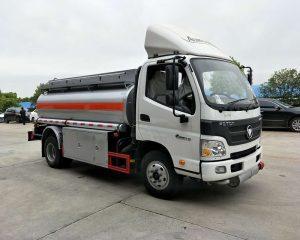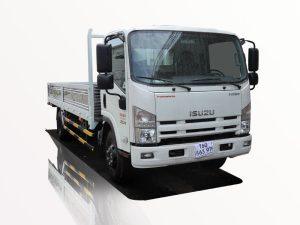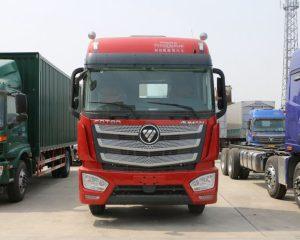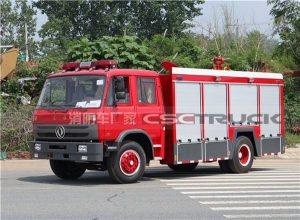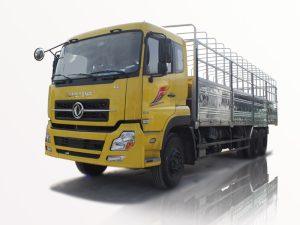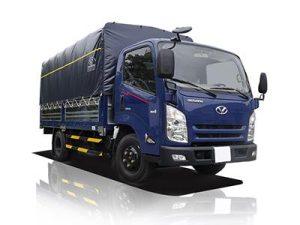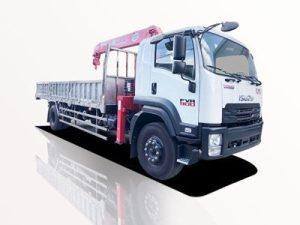Monday to Saturday - 8:00 -17:30
Understanding Vactor Vacuum Trucks: The Essential Guide
Vactor vacuum trucks are vital vehicles used extensively in waste management, sewage cleaning, industrial cleaning, and maintenance services. These trucks combine the functions of vacuuming, transporting, and disposing of various types of waste, making them essential in many industries. This article presents a comprehensive overview of vactor vacuum trucks, including their uses, features, maintenance, and much more.
What is a Vactor Vacuum Truck?
A vactor vacuum truck is a specialized vehicle designed for the efficient removal and transport of waste materials. It utilizes a powerful vacuum system to suck up debris, liquids, and solids and often includes a tank for storing the extracted materials. These trucks are commonly employed in municipal, industrial, and construction applications.
History of Vactor Vacuum Trucks
The concept of vacuum trucks dates back several decades. Initially invented to manage sewer systems, the Vactor brand emerged in the mid-20th century and quickly became synonymous with high-quality vacuum technology. Over the years, advancements in vacuum technology and engineering have significantly improved their performance and versatility.
Key Components of a Vactor Vacuum Truck
- Vacuum System: A powerful suction system that can generate high levels of air flow to effectively capture debris and liquids.
- Storage Tank: A large tank where waste materials are collected and transported. Tank sizes typically range from 1,000 to 3,000 gallons.
- Hose and Nozzle: Flexible hoses and specialized nozzles help direct suction for effective waste removal.
- Pumping System: This pumps captured liquids, facilitating easy transport and disposal.
Applications of Vactor Vacuum Trucks
Vactor vacuum trucks serve various industries and come with many applications, including:
1. Sewage and Drain Cleaning
One of the primary uses of vactor vacuum trucks is in the cleaning of sewers and drain lines. The powerful suction capability allows for the efficient removal of blockages, buildup, and debris, ensuring that wastewater systems remain operational.
2. Industrial Cleanup
In industrial settings, vactor vacuum trucks are crucial for cleaning up spills, hazardous materials, and waste. They provide a safe and effective method for handling materials that could pose risks to both workers and the environment.
3. Hydro Excavation
Vactor trucks equipped with hydro excavation capabilities combine vacuuming with high-pressure water jets. This method is particularly useful for digging and trenching in sensitive areas without damaging underground utilities.
4. Construction Sites
On construction sites, these trucks can be used to remove excess materials, mud, and debris, helping maintain a clean and safe work environment. Their timely removal of waste contributes to project efficiency.
5. Environmental Remediation
Vactor vacuum trucks also play a role in environmental cleanup projects. They can safely remove contaminated soil, liquids, and debris as part of the remediation process.
Benefits of Using Vactor Vacuum Trucks
Employing vactor vacuum trucks offers numerous benefits, including:
1. Efficiency and Time-Saving
Vactor trucks operate with speed and efficiency, significantly reducing the time required for waste removal compared to traditional methods.
2. Reduced Labor Costs
With their powerful vacuum systems and large storage capacities, vactor trucks can minimize the need for manual labor during cleanup operations, leading to cost savings.
3. Environmental Protection
These trucks are designed to minimize spills and leaks, ensuring that hazardous materials are safely contained and disposed of without harming the environment.
4. Versatility
Vactor vacuum trucks can adapt to various tasks across different industries, making them a valuable asset for waste management companies.
Key Features of Vactor Vacuum Trucks
Vactor vacuum trucks boast several features that enhance their performance:
1. Variable Speed Control
Many vactor trucks include variable speed controls that allow operators to adjust the suction power according to the nature of the material being collected.
2. Durable Construction
These vehicles are built to withstand the rigors of tough working conditions, with robust materials and designs ensuring longevity and reliability.
3. User-Friendly Operation
With intuitive controls and straightforward operation, vactor trucks are easy to use, reducing the learning curve for new operators.
4. Advanced Safety Features
| Safety Feature | Description |
|---|---|
| Emergency Shutoff | Allows for immediate shutdown in case of emergencies. |
| Backup Alarms | Alerts individuals of the truck’s movement when reversing. |
| Stability Systems | Prevents tipping during operation or while on uneven terrain. |
Maintenance of Vactor Vacuum Trucks
Proper maintenance is essential to ensuring the longevity and efficiency of vactor vacuum trucks. Here are some maintenance tips:
1. Regular Inspections
Conduct routine inspections to check for wear and tear on critical components. Look for leaks, damage, and perform functionality tests on the vacuum system.
2. Cleaning the Storage Tank
Regularly clean the storage tank to prevent buildup and contamination. This helps maintain the performance of the vacuum system and reduces odors.
3. Flushing the Systems
Periodically flush the vacuum and pumping systems to remove accumulated debris, ensuring reliable operation.
4. Lubrication
Regularly lubricate moving parts and components to prevent wear and ensure smooth operation.
Choosing the Right Vactor Vacuum Truck
Selecting the right vactor vacuum truck involves evaluating several factors:
1. Application Needs
Consider the specific tasks you need the truck for. Different models may be optimized for different applications, such as hydro excavation or standard waste removal.
2. Capacity Requirements
Choose a truck with a suitable tank capacity—too small will require frequent emptying, while too large may hinder maneuverability.
3. Budget Considerations
Evaluate both the purchase price and ongoing maintenance costs to ensure that the truck fits your budget over the long term.
Practical Examples of Vactor Vacuum Truck Use
Vactor vacuum trucks have been employed successfully in various real-world scenarios:
Example 1: Urban Sewer Maintenance
City authorities used vactor vacuum trucks to address chronic sewer blockages. The trucks efficiently removed buildup and roots, significantly improving waste flow and preventing overflow incidents.
Example 2: Industrial Site Cleanup
In a factory experiencing chemical spills, vactor trucks were deployed to rapidly remove hazardous materials, ensuring worker safety and compliance with environmental regulations.
Common Misconceptions About Vactor Vacuum Trucks
1. They are only for sewage disposal
While often associated with sewage and wastewater, vactor trucks are versatile and can handle various waste types, including industrial and construction debris.
2. They are too expensive to operate
Though initial costs may be high, the efficiency and labor savings that vactor trucks provide often offset these expenses in the long run.
3. They are not environmentally friendly
Modern vactor trucks are designed with environmental safety in mind, effectively preventing spills and leaks during waste collection and transport.
FAQs About Vactor Vacuum Trucks
1. How much does a vactor vacuum truck cost?
The cost of a vactor vacuum truck can range from $100,000 to over $500,000, depending on specifications and features.
2. What maintenance is required for a vactor vacuum truck?
Regular maintenance includes inspections, cleaning the storage tank, flushing systems, and lubricating moving parts.
3. How do I know what capacity I need for a vactor truck?
Your capacity needs depend on the types of jobs you handle. Assess your workload and typical waste volumes to make an informed decision.
4. Can vactor vacuum trucks handle hazardous waste?
Yes, many vactor vacuum trucks are equipped and certified to manage hazardous waste safely and compliantly.
5. What is hydro excavation, and how does it work?
Hydro excavation uses high-pressure water to break up soil, which is then vacuumed into the truck. It is an effective way to dig safely around buried utilities.
6. Are there training programs for operating vactor vacuum trucks?
Yes, many manufacturers and industry organizations offer training programs to ensure operators can safely and efficiently use vactor vacuum trucks.


